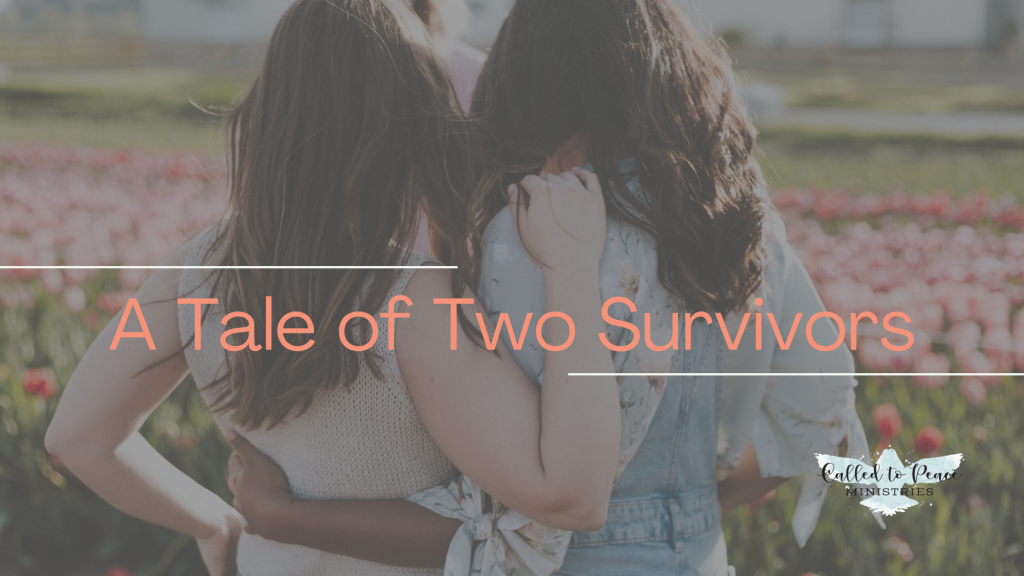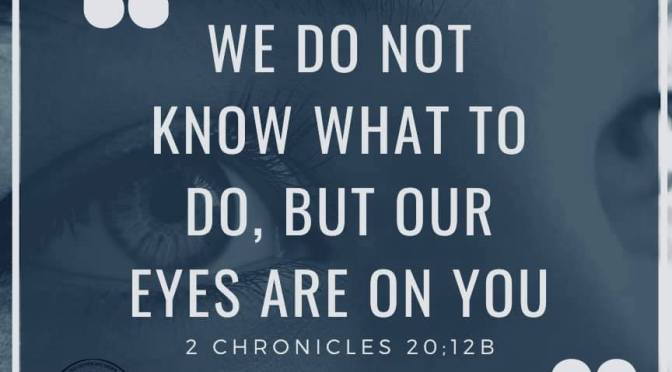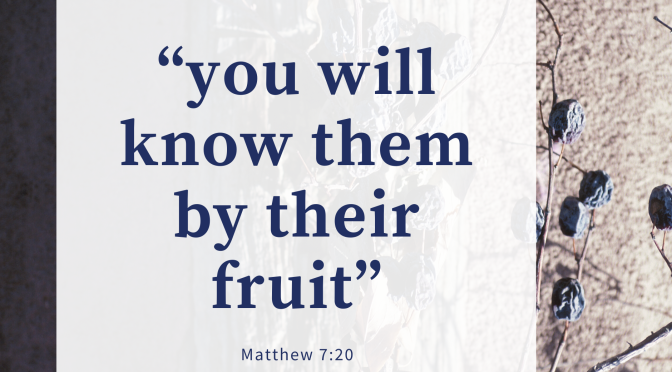
Thanks to Lauren Rose for writing this account of two survivors. One story is incredibly sad– the other incredibly hopeful. The outcomes are directly tied to the way the responses they precious women got when they reached out to their churches for help. It boggles the mind to hear a story like Junia’s, but it is still far too common. My prayer is that God will use these stories to help awaken His people to minister more effectively to those suffering through the oppression of domestic abuse.
A Tale of Two Survivors, As told by Junia and “Hannah,” written by Lauren Rose
Both Junia and “Hannah” found themselves in authoritarian organizations (Sovereign Grace Ministries “SGM” and Institute in Basic Life Principles “IBLP”) that used their desire to honor God as a tool to groom them for domestic abuse. Both organizations have now been exposed for their horrific teachings that resulted in the cover-up of an extraordinary amount of abuse.
How did they overcome, what role did the church play in their journeys, and where are they now?
“Hannah” and Junia both passionately loved Jesus. They were both missionaries as singles. Junia and Hannah met their husbands in the organizations mentioned above, and they both committed to controlled courtship as promoted by these organizations. They eventually found themselves trapped in abusive marriages and unsure how to label and define what they were experiencing. After all, the theology they had been taught had groomed them not to recognize their husbands’ treatment of them as abuse.
Junia recounts, “I dated my soon-to-be husband for five weeks and was engaged for five months. I felt pressure to get married because I was 29 and considered SUPER old. I saw red flags, but once you’re engaged in SGM you’re basically married and can’t back out. I remember wondering what I was getting myself into on my wedding day but feeling like I would end up single and alone if I didn’t take the “opportunity” in front of me. Because being single in SGM makes you less than human, especially past 30.”
Hannah shares, “I had only spent a few meetings (ranging from a day to a few days) with my soon-to-be husband before we were engaged. I felt outward pressure from the organization’s teachings to get married because I couldn’t be single and on my own. I had to guard my heart and always be under a man’s authority to be safe.
Once engaged, the extreme uneasiness continued, but I didn’t know how to back out. I didn’t know how to make my own major decisions or follow my intuition. I had been suppressing my intuition for years to deny what I saw in the leader of the organization (IBLP Bill Gothard) I had worked for. All I knew was I had to be under authority to be safe, so the safest thing in my mind when I felt confusion was to deny what I felt and get under the authority of a man.”
Elements of Abuse in Their Marriages
Marriage for Junia and Hannah was centered around their husbands – keeping them happy and meeting their every need. Scripture was used to justify their manipulation, blame-shifting, and sexual coercion. Their husbands were to be king of the castle, and they were there to serve since Scripture was clear that, “They were created to be his helpmeet.” (Genesis 2:18)
At first, they both tried hard to make their husbands happy, but for both women, nothing they did could satisfy their husbands’ desire for control.
Both were miserably depressed from the oppression in their marriages. Yet, both were committed to honoring God, so they fought for their marriages, because after all, “God hates divorce.” (Mal. 2:16)
They read many marriage books to fix their marriages and be “a more submissive wife.” Both tried marriage counseling, weekly one-on-one meetings with the pastor and his wife, and individual counseling for themselves, but nothing seemed to make the marriage work. Marriage counseling made things even worse.
Then, on the quest to save their marriages, they both found counselors who recognized domestic abuse and encouraged them to set firm boundaries. Sadly, this led to increased abuse and eventually the need for separation for them.
Both Junia and Hannah reached out to their churches. Junia found only silence and blame. Hannah found Called to Peace Ministries.
This is where Junia and “Hannah’s” stories diverge dramatically.
Junia’s church blamed her and told her to try harder at being a better wife.
Her husband finally agreed to try a different church but only because of a theological disagreement with leadership. For the first year at the new church, Junia and her husband did marriage counseling with the pastor and his wife. It seemed to make things better but only because Junia did everything the pastor told her to and constantly started asking her husband for forgiveness to smooth things over. She spent the next year meeting weekly with the pastor’s wife, who continually told her she just needed to submit more and try harder while constantly telling Junia that leaving, even temporarily, was unbiblical. At the same time, her husband was supposed to be meeting with the pastor. The few times they did meet together, he would always come back saying the pastor said he’d changed enough, and I was just being unforgiving and bitter.
Finally, she researched shelters, packed up her three kids (ages 3, 5, and 7) in the minivan with whatever they could fit, and drove 10 hours to family. She went back to the church where she had initially met her husband, hoping she’d find a place of refuge. She had weekly meetings with the pastor, who said the church would help them with housing, fellowship, finding a job, childcare, etc.
“I was repeatedly told that I was expecting too much of the church when I would plead for help or ask why the things the pastor had promised never happened. In our final meeting, the pastor told me that my desire to advocate for others and for my husband to experience legal consequences for his sexual assault of me made him seriously doubt my salvation. Even though I thought the purpose of that meeting was to figure out how to help me since I was the closest to suicidal, I’d ever been since deciding to leave.” she states.
A few weeks after she and her kids moved back to this church, her ex moved back and started going to the church too. “The kids and I would go to church, and no one would talk to us. I would see the pastors and other people talking with him, inviting him to their houses for lunch, etc. A church family sold him a car for $10, while that week told me that I needed to stop relying on him so much financially after I’d asked him for a little extra money so the kids could buy a present for a friend’s birthday party.” Junia shares.
“After escaping, my kids and I spent three months in a shelter. We ended up moving six times in the first two years. I finally got a Section 8 housing voucher. But finding an apartment was almost impossible because even though the voucher paid the rent, my credit was horrible due to financial abuse. So, my applications kept being rejected. I finally found an apartment in a section of town where I had no interest in living.
“During the last six years I’ve also had no close in-person relationships. There’s no one to call at 2 a.m. in an emergency. I can go months without having any physical contact with another adult. Before I started my business, I could go weeks without talking to another adult.
I live with a chronic, low-level feeling of hopelessness due to the amount of isolation I’ve experienced for so long. I try not to think about it because it hurts too much, and I have to expend too much energy trying to stay out of extreme depression if I do.
“And then there’s church. I’ve realized that even walking into a church feels like drowning in a pool of electrified water. The mental image I have is the congregation standing casually around on the pool deck, watching me being electrocuted and drowning at the same time. They do nothing but watch while standing there with their arms around my ex. I can’t go into a church without getting close to a panic attack. So, I just don’t.
My faith is in tatters. I’m not even sure I’m a Christian anymore. I’ve been unable to separate my view of God from the actions of people who say they follow him. At the least, the God I grew up believing in seems to have completely abandoned my children and me. I’m currently unable to read/listen to more than a few lines of Scripture at a time without starting to dissociate, especially if someone starts sermonizing about God being good,” Junia concludes.
In contrast, Hannah’s counselor put her in touch with Called to Peace Ministries (CTPM).
They immediately assigned her an advocate and church partner liaison and placed her in a support group. At the same time, Hannah also went into a heavy court battle with the former leader (Bill Gothard) of the organization she had worked for as he was trying to put a judgment on her and demand she recant everything she had said about him.
CTPM began working with her church, where she was in marriage counseling/accountability. Her church wanted to understand the dynamics of domestic abuse since they were concerned with what they saw along with her husband’s lack of repentance. Finally, Hannah decided she would escape but reached out to her church one last time for help. Her church got involved and helped her get to a place of safety.
All she had wanted to was honor God with her life and now her marriage was over, and she was facing court for speaking the truth God told her to. She felt God had forsaken her and had difficulty understanding that God loved her because her “life felt destroyed and was beyond painful for following ‘Biblical principles for success’,” as she was taught.
When my pastor said to me, ‘I’m sorry for what you’ve been through, this is not God’s heart towards you. We desire you to know there are men who do love God and desire to protect you. We, as a church, want to walk with you and protect you.’
“I had never experienced the love of God as I did at that moment. My heart immediately turned to God. I began pouring into the Psalms, and I could sense the mercy of God through my church being willing to help me get to a place of peace. I knew He was good and coming to rescue me,” Hannah states confidentially.
Her church kept its word and walked with her through all of it. They made sure she had safe housing and was provided for. They continually pointed her to the love of God, and the truth that abuse wasn’t His heart towards her. They prayed with her and were there to help when she called.
“My CTPM support group leader/advocate mentored me. She helped me find the love of Jesus in the aftermath of domestic abuse. Again and again, she demonstrated the heart of God towards me, which was nothing like my abusers, by pointing me to Scripture, the suffering of Christ, and how much He loved me. She pursued me when she knew I was struggling and kept telling me to cling to Him – that He was good and faithful. I trusted her when she said He was good because I had watched her advocate for me.
My faith in His love and care for me was restored. I clung to Him through the challenges of fleeing domestic abuse and facing my former cult leader in court, and I saw His faithfulness beyond what I could imagine, as they said I would.
“Today, I’m in a secure job and housing. My child sees God as someone who is there for her when she needs Him. She knows He answers prayers and works miracles. She recently walked forward to be baptized. Worship music and prayer are a huge part of our home. I know clinging to God is my only source of hope. He has done miracles for us and provided again and again. He gave me peace. I’m incredibly grateful for CTPM and my church, which pointed me to the love of God. Without them, I don’t think my child and I would be walking so closely with God today.
“My heart is to help others find the same hope and healing I found in the heart of God after domestic abuse. I want them to truly know the love and faithfulness of Jesus who can heal and restore their hearts,” Hannah concludes.















You must be logged in to post a comment.